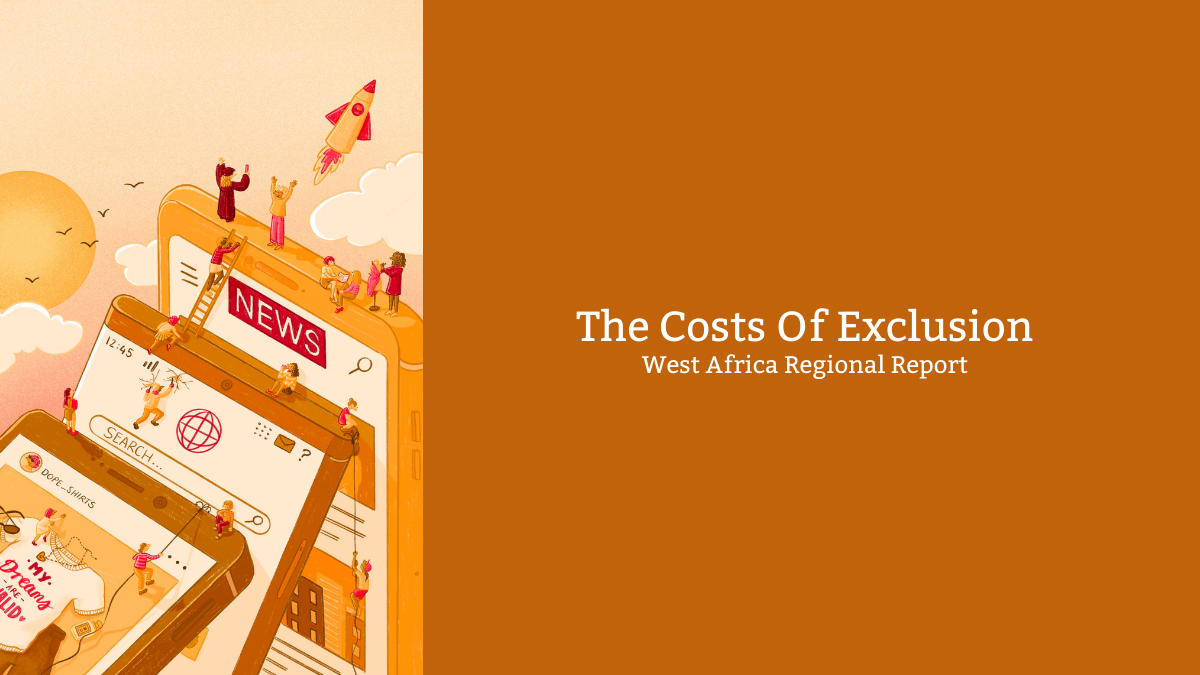“It [the internet] allowed us to transcend public barriers; It has made our world like a small village. It was [a] big support actually.” – Patricia Zoundi Yao, founder of Canaan Land and Costs of Exclusion interviewee.
The Costs of Exclusion West Africa regional report brings together interviews, focus groups, and a mobile survey in Nigeria to understand more about how the digital gender gap affects the region. It explores what is lost – economically, educationally, and socially – through a continuing legacy of digital exclusion. It also highlights the experiences of women who have been the early adopters of the internet – the businesses created, the classes taken, and the communities built.
We estimate that the seven West African countries included in this model missed out on a collective $18.4 billion USD GDP in 2020. To realise the full economic opportunities of digital inclusion, there is an urgent need to close the digital gender gap.
Key findings:
- Women’s awareness and use of the internet continues to grow, although there are clear gaps to overcome before universal internet access can be achieved. Device gaps remain a crucial barrier for women, even those who have overcome the negative social norms around women’s use of ICTs.
- Internet access enables participation in society. Women with internet access report being more confident in finding information and conducting a wide range of activities, including education, health, employment and political engagement, than their offline peers.
- Once online, women are using the internet for financial benefit. Women with internet access are more confident when it comes to finding better prices, setting up a mobile money or bank account, and finding professional services.
- Women are both consumers and producers of online content and services. Women are entrepreneurs and content creators across a wide range of economic sectors. New business models and flexible ways of working are emerging with greater use of ICTs, and many women in West Africa are already taking advantage of the possibilities — when they have access to the tools, technology, and support they need.
- Internet access has provided support for social and economic resilience for women during lockdowns. Nigerian women with internet access were less likely to report having lost income over the course of the Covid-19 pandemic than their offline peers.
This report builds on the Costs of Exclusion report, published by the Alliance for Affordable Internet in October 2021.

